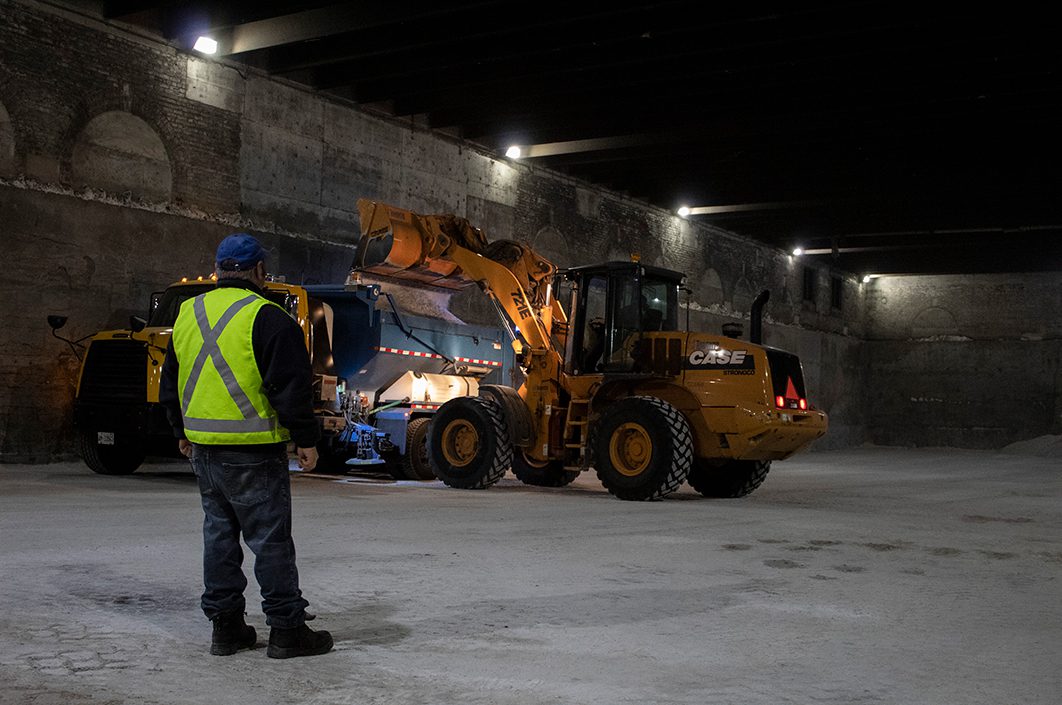Despite the chaos of flashing lights, machines clanging and engines roaring, the construction workers remain calm, including Robert Kemp, supervisor of roads and sidewalks. He’s been working with the City of Toronto for 35 years and the overnight shift for the past 15.
An important part of Kemp’s job is to overlook the two major highways running through Toronto: the Don Valley Parkway and the Gardiner Expressway.
“We are there to clean up the mess and get the highways open as quickly as possible throughout the night,” Kemp says of the job, which can involve anything from clearing accidents to finishing road construction. Arriving on accident scenes is his least favourite part of the job; no one wants to see people injured or even worse, he says.
Toronto Mayor John Tory announced in May plans for the “busiest” construction season ever, detailing more than $1-billion in work planned, including $590 million for transportation infrastructure such as major roads and local roads, highways, sidewalks and bike lanes. The rest will be spent on water projects involving water mains, sewers, basement flooding protection and stormwater management.
The city’s construction plan says that 63 projects will be done on overnight hours or on a 24/7 schedule.

“It’s challenging for us too at night because we have to keep in mind that we as operators have to abide by those rules as well, but because there is less traffic, it’s not so bad,”
– Robert Kemp
“Overnight it is much easier to get around, there is less pedestrian traffic and less vehicle traffic,” said Kemp, a lifelong resident of Toronto who started his career with the city’s forestry division before moving to transportation. His mother had worked for Toronto’s water department. His father was a welder.
One of the largest projects Kemp has worked on was the King Street pilot project that launched in November of 2017. The project aims to reduce congestion and improve the commute for public transit users by giving streetcars priority access along King Street between Bathurst and Jarvis streets. Private cars are no longer able to drive through more than one intersection on the busy downtown street before they must turn off it.
While the roads are nearly empty at 4 a.m., workers like Kemp must still follow the rules of the road for the safety of others as well as themselves.
“It’s challenging for us too at night because we have to keep in mind that we as operators have to abide by those rules as well, but because there is less traffic, it’s not so bad,” Kemp said.
Mark Mills, manager of road operations and maintenance for the city, takes all precautions to insure the safety of his overnight staff.
“With decreased traffic sometimes cars are travelling faster, so that can put workers at risk,” Mills said. “What we do see is an increase in impaired drivers, not just alcohol or drugs but impaired due to drowsiness.” Mills ensures work zones are clearly visible to all motorists.
“We put out more signs and cones than probably required but we do it to enhance the traffic control,” he said.
Check out more Toronto at 4 a.m. content here!
Online: Toronto Observer
Instagram: @6ix_at_4
Twitter: @6ix_at_4
Facebook: @6ixat4

